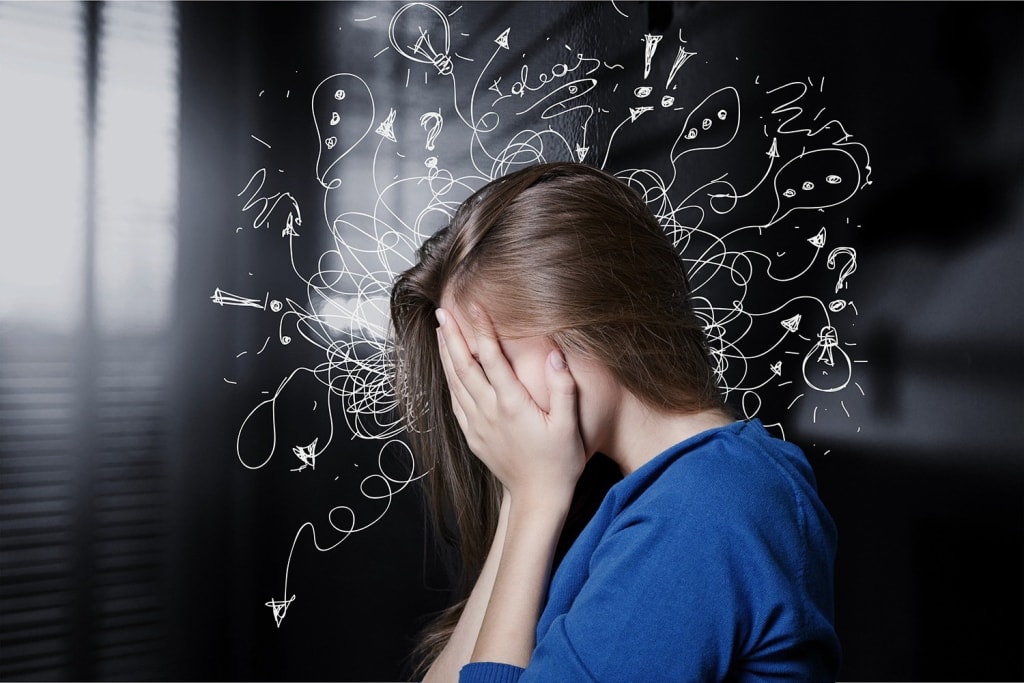10 effective ways to reduce stress and anxiety
Expert Tips for Managing Stress and Anxiety in Your Daily Life

Stress and anxiety are common issues that affect millions of people worldwide. Whether it's due to work, relationships, finances, or other factors, stress can have a significant impact on your physical and mental health. Fortunately, there are many effective ways to reduce stress and anxiety. Here are ten strategies that you can use to manage stress and improve your overall well-being:
Practice mindfulness meditation
Mindfulness meditation is a practice that involves paying attention to the present moment without judgment. It can help you reduce stress and anxiety by training your mind to focus on the present rather than worrying about the future or ruminating on the past. To practice mindfulness meditation, find a quiet place to sit, close your eyes, and focus on your breath. When your mind wanders, simply bring your attention back to your breath.
Get regular exercise
Exercise is a great way to reduce stress and anxiety. It releases endorphins, which are natural mood-boosting chemicals that can help you feel happier and more relaxed. Try to get at least 30 minutes of moderate-intensity exercise per day, such as brisk walking, jogging, or cycling. You can also try yoga or other forms of low-impact exercise.
Practice deep breathing
Deep breathing is a simple and effective way to reduce stress and anxiety. It works by slowing down your heart rate and calming your nervous system. To practice deep breathing, find a comfortable place to sit or lie down, close your eyes, and take slow, deep breaths in through your nose and out through your mouth.
Get enough sleep
Sleep is essential for good health and well-being. Lack of sleep can lead to increased stress and anxiety, as well as a host of other health problems. Aim for at least seven hours of sleep per night. Create a relaxing bedtime routine, such as taking a warm bath, reading a book, or listening to soothing music, to help you fall asleep more easily.
Eat a healthy diet
Eating a healthy diet can help reduce stress and anxiety by providing your body with the nutrients it needs to function properly. Avoid processed foods and sugary drinks, which can cause energy crashes and mood swings. Instead, focus on eating a variety of nutrient-dense foods, such as fruits, vegetables, whole grains, lean proteins, and healthy fats.
Practice yoga or other relaxation techniques
Yoga, tai chi, and other relaxation techniques can help reduce stress and anxiety by promoting relaxation and reducing muscle tension. They can also help improve flexibility, balance, and overall physical fitness. Try to practice yoga or other relaxation techniques at least once a week.
Connect with others
Social support is important for good mental health. Connect with friends, family, or other supportive people in your life to reduce stress and anxiety. Join a support group or participate in community activities to meet new people and build relationships.
Set realistic goals
Setting realistic goals can help reduce stress and anxiety by giving you a sense of purpose and direction. Choose goals that are meaningful and achievable, and break them down into smaller, more manageable steps. Celebrate your progress along the way, and don't be too hard on yourself if you experience setbacks.
Practice gratitude
Practicing gratitude can help reduce stress and anxiety by focusing your attention on the positive things in your life. Take time each day to reflect on the things you're grateful for, such as your health, your relationships, or the beauty of nature. Write them down in a journal or share them with someone you trust.
Seek professional help if needed
If you're experiencing significant stress or anxiety that's interfering with your daily life, don't hesitate to seek professional help. A mental health professional can help you develop coping strategies and provide support as you work through yourchallenges. They may recommend therapy, medication, or other treatments that can help you manage your symptoms and improve your overall well-being.
In conclusion, stress and anxiety are common issues that can have a significant impact on your physical and mental health. However, there are many effective ways to reduce stress and anxiety. By practicing mindfulness meditation, getting regular exercise, practicing deep breathing, getting enough sleep, eating a healthy diet, practicing yoga or other relaxation techniques, connecting with others, setting realistic goals, practicing gratitude, and seeking professional help if needed, you can manage your stress and improve your overall well-being. Remember, everyone experiences stress and anxiety at some point in their lives, but you don't have to face it alone. With the right tools and support, you can overcome these challenges and live a happy, healthy life.






Comments
There are no comments for this story
Be the first to respond and start the conversation.